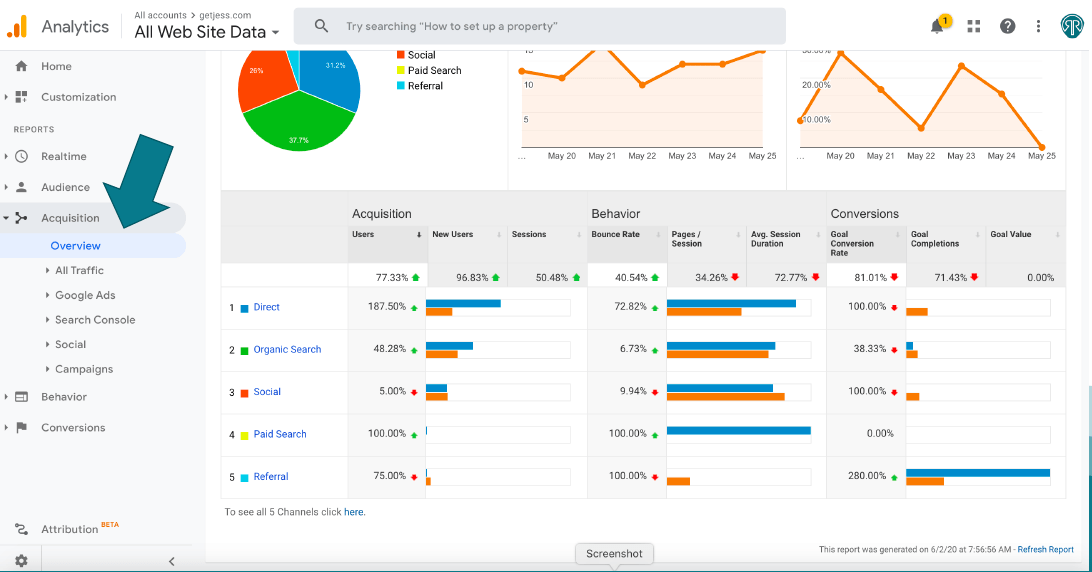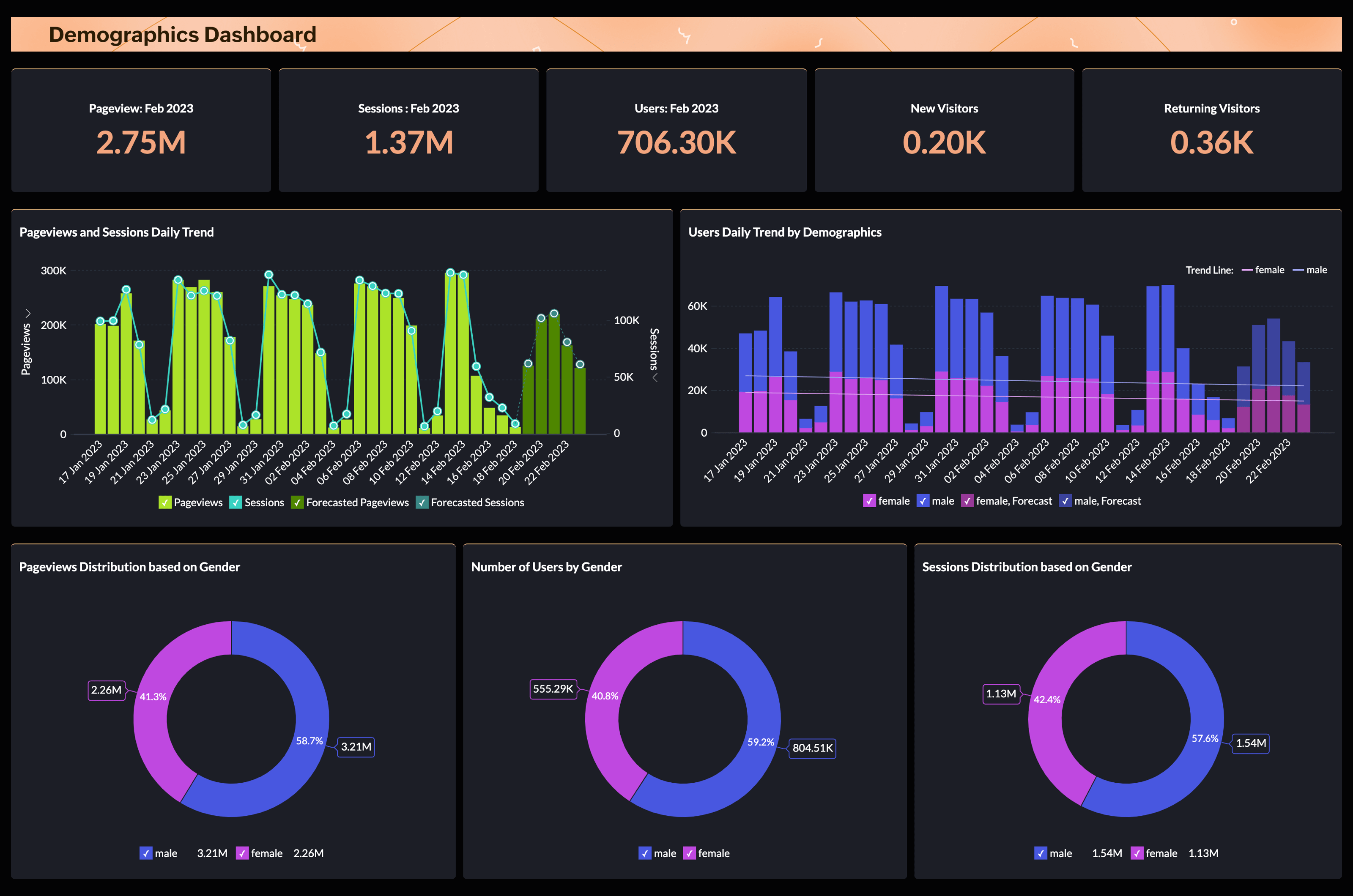Discover When Does the Google Analytics Tracking Code Send an Event Hit to Analytics and Why It Matters
Discover When Does the Google Analytics Tracking Code Send an Event Hit to Analytics and Why It Matters
Blog Article
Master Internet Site Insights With Accurate Google Analytics Monitoring Code
The reliable utilization of Google Analytics hinges on the accurate execution of its tracking code, an essential step frequently ignored by site owners. What are the typical pitfalls that could weaken your tracking efforts, and exactly how can you ensure precision in your method?
Comprehending Google Analytics Fundamentals
Google Analytics is a crucial device for web site proprietors and online marketers, providing invaluable understandings into user habits and internet site efficiency. At its core, Google Analytics gathers information about visitors to an internet site, enabling customers to assess metrics such as website traffic resources, customer involvement, and conversion prices. Recognizing these fundamentals is critical for optimizing an internet site's effectiveness and improving individual experience.
The system employs cookies to track communications, taping data such as page sights, session periods, and bounce rates. This details is accumulated and provided through customizable dashboards, making it possible for users to imagine patterns over time. Key efficiency indications (KPIs) can be monitored, such as the complete variety of customers, new versus returning visitors, and the geographic distribution of the audience.
Additionally, Google Analytics supplies segmentation features, allowing users to isolate certain website traffic sources or individual demographics for even more targeted evaluation. By mastering these foundational elements, internet site proprietors can make educated choices about web content technique, advertising campaigns, and general website renovations. Inevitably, comprehending Google Analytics essentials is vital for leveraging data to drive development and accomplish organization purposes properly.
Establishing Up Your Tracking Code

Duplicate the offered tracking code and paste it right into the HTML of your site. Preferably, this code needs to be positioned in the header section of every web page you desire to track. This makes certain that the monitoring code lots prior to any kind of various other web content, permitting it to capture data precisely. There are plugins available that streamline the integration process. if you are utilizing a material management system (CMS) like WordPress.
After installment, validate that the tracking code is working correctly by utilizing Google Tag Aide or the Real-Time records in Google Analytics - when does the google analytics tracking code send an event hit to analytics?. This step is necessary to confirm that your data collection is exact and energetic, establishing the structure for informative evaluation
Usual Tracking Code Issues
Numerous website proprietors come across usual issues with their Google Analytics tracking code that can impede information collection and analysis. One common problem is improper installation. This might happen when the monitoring code is placed in the wrong area of the internet site's HTML, usually causing absent or incomplete information. Additionally, having several circumstances of the monitoring code on a single web page can result in filled with air metrics, as user communications may be counted more than once.
One more problem arises from making use of ad blockers, which can stop the monitoring code from implementing altogether, thus skewing data. when does the google analytics tracking code send an event hit to analytics?. Moreover, failure to configure filters correctly can lead to the exemption of essential website traffic sources or the inclusion of undesirable recommendation spam, distorting the information collected
Website owners might likewise neglect the relevance of tracking code updates, especially when migrating to Google Analytics 4 (GA4) from Universal Analytics. Lastly, inadequate testing prior to launching adjustments can lead to unseen mistakes in the monitoring code, further making complex information integrity. Resolving these usual concerns is important for making sure exact monitoring and insightful analytics.
Analyzing Web Site Information Efficiently
Accurate data collection is only the very first step in leveraging Google Analytics; the real value hinges on successfully analyzing that data to drive enlightened decision-making. To attain this, it is necessary to identify vital performance indications (KPIs) that align with your service objectives. Concentrate on metrics such as conversion prices, individual interaction, and website traffic sources, as these will supply understandings right into individual behavior and the overall efficiency of your site.
Using Google Analytics' division functions enables a much deeper understanding of your target market. By breaking down information into specific demographics, behaviors, and traffic networks, you can discover fads and patterns that inform targeted approaches. Implementing custom records and control panels can streamline this procedure, allowing quick access to important data.
Furthermore, routinely reviewing data patterns in time helps to recognize anomalies and opportunities for improvement. Utilize visualization tools to present data in a quickly digestible format, helping with more reliable communication with stakeholders. Eventually, the capability to analyze website data successfully equips businesses to make strategic decisions that boost customer experience, maximize advertising initiatives, and drive development.

Best Practices for Accurate Tracking
Implementing efficient tracking practices is important for acquiring reliable data in Google Analytics. To make certain precise tracking, start by appropriately installing the Google Analytics tracking code on every page of your site. This can be achieved via a tag supervisor or by directly embedding the code into the HTML.
Following, configure your Google Analytics account to exclude interior website traffic. This can be done by establishing filters that identify and remove check outs from your organization's IP address, consequently protecting against skewed data. Additionally, utilize event tracking to keep track of specific user interactions, such as downloads or video clip plays, which common page views might forget.
Regularly investigate your tracking arrangement to validate that all attributes, such as goals and ecommerce tracking, are operating correctly. Establish a consistent identifying convention for your events and projects to facilitate much easier coverage and sites analysis.
Last but not least, take into consideration leveraging UTM specifications for projects to gain insights into see here now the efficiency of different advertising efforts. By adhering to these finest methods, you can improve the precision of your information collection and evaluation, eventually causing more informed decision-making for your site.
Verdict
By making certain the monitoring code is appropriately put and consistently investigated, web site proprietors can catch important customer communication data, thus assisting in the identification of essential efficiency indications. Ultimately, a durable monitoring framework improves the ability to drive engagement and enhance total internet site performance.

Inadequate testing prior to releasing changes can result in unseen mistakes in the tracking code, even more complicating information integrity.Executing effective tracking practices is important for obtaining trusted data in Google Analytics. By guaranteeing the tracking code is appropriately put and on a regular basis visit the website examined, site owners can record crucial individual interaction information, therefore facilitating the identification of key efficiency signs.
Report this page